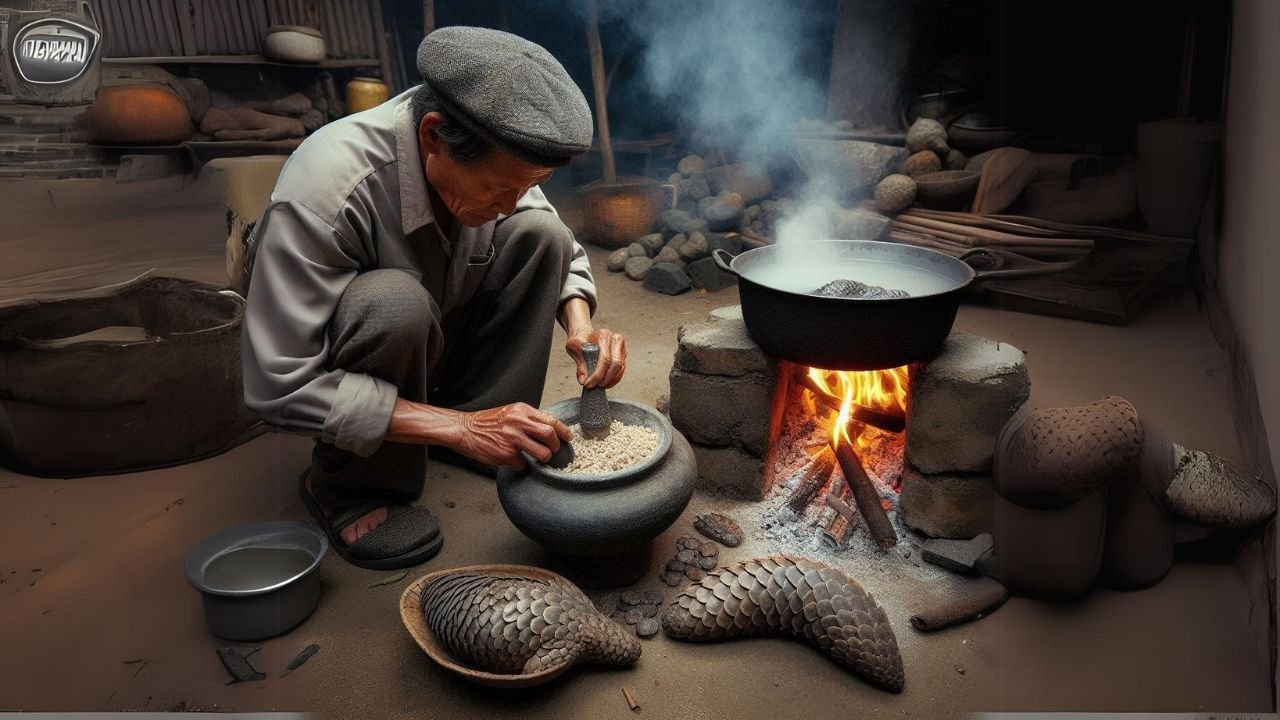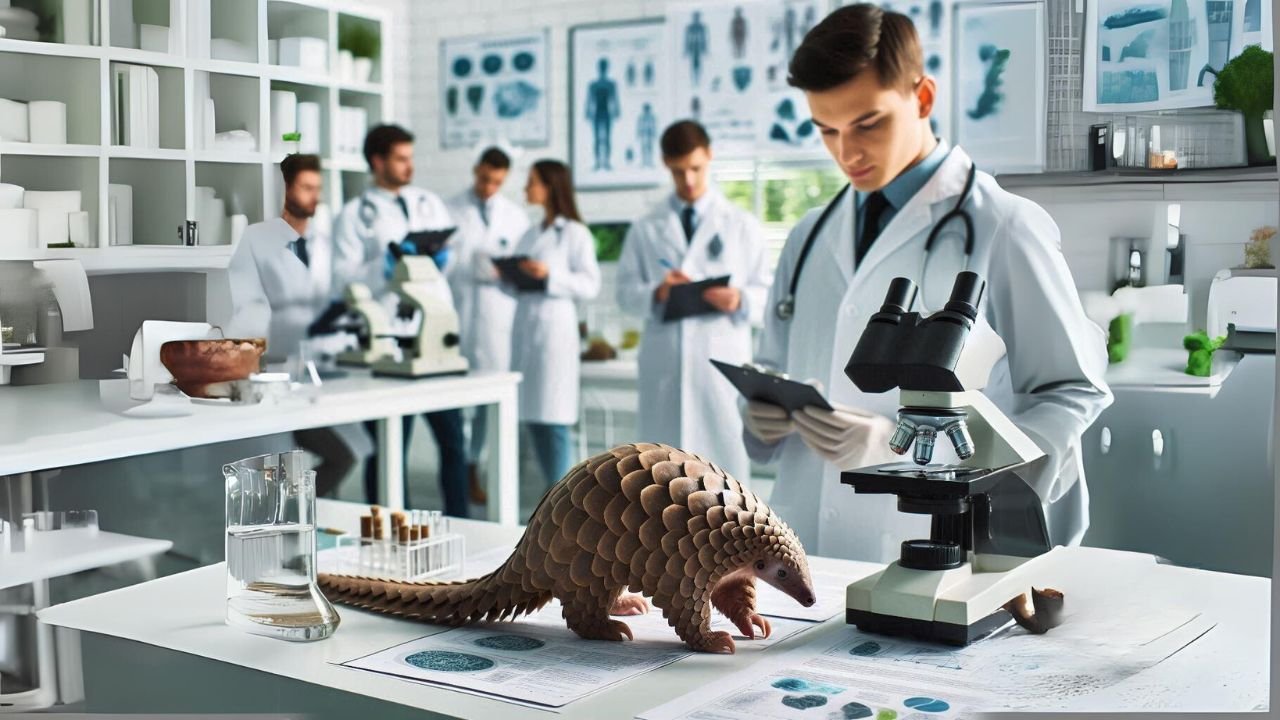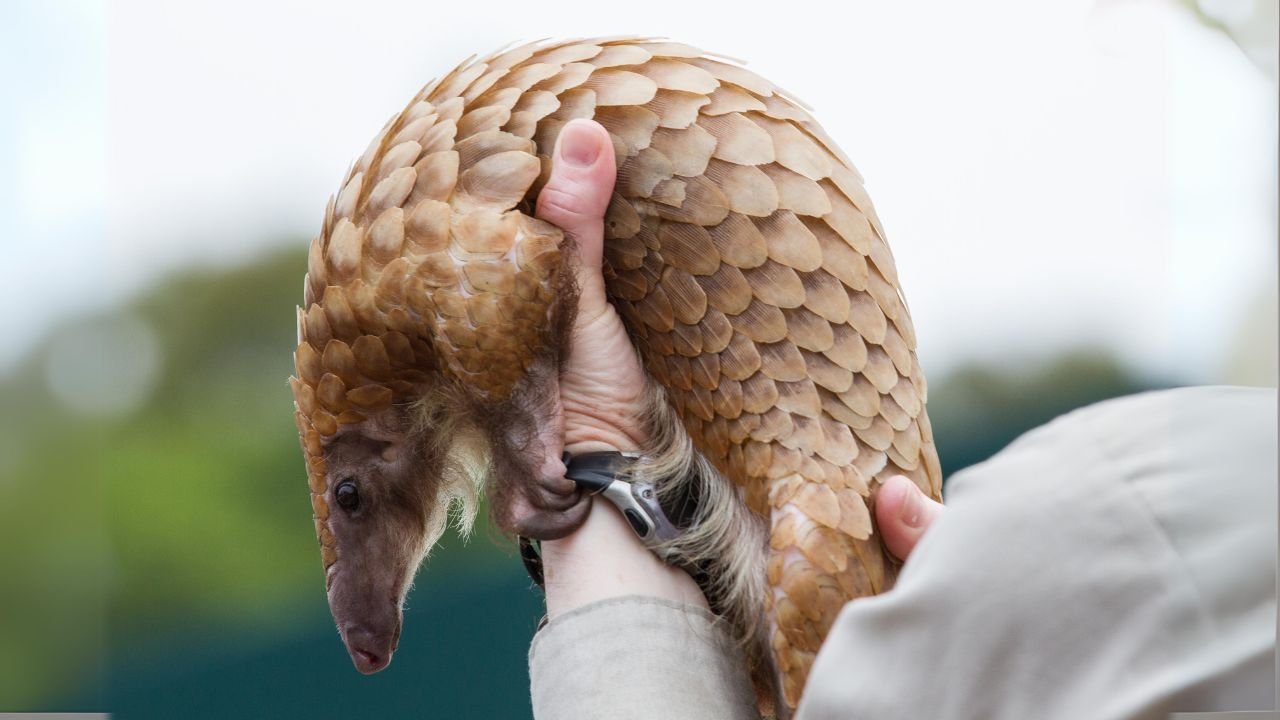Pangolins are a group of only mammals on Earth that have scales on their bodies rather than hair. Found in Southeast Asia and parts of Africa, they are classified into eight species. Pangolins are believed to cure various diseases in China, Vietnam, and parts of Africa, due to which pangolins are the most trafficked animal in the world. Here, we gathered information about what disease a pangolin can cure, and whether there are any proven medicinal benefits of pangolin body parts.
What Diseases Does A Pangolin Cure?

Pangolin body parts are used in making traditional medicines in China, Vietnam, and some parts of Africa to cure various diseases. There is no scientific evidence about the effectiveness of these medicinal practices. No logical mechanism of action exists that could prove the efficacy of these medicines. However, such practices are still very popular and drive the black market. To satisfy demand, pangolins are illegally hunted on a large scale and then trafficked, which threatens the animals to the brink of extinction in their natural habitat.
History Of Pangolin Use To Cure Diseases
The first record of the use of pangolin body parts for the treatment of diseases was found in Ben Cao Jinji Zhu (Variorum of Shennong’s Classic of Materia Medica”, 500 CE), which states that pangolin scales can cure ant bites. It also states that the burning of scales can treat people who cry hysterically at night.
During the Tang Dynasty in 682 CE, a recipe of pangolin scales, herbs, and minerals was used to expel evil spirits. In 752 CE, the use of pangolin scales for the stimulation of milk secretion in lactating women was recommended in Wai Tai Mi Yao (“Arcane Essentials from the Imperial Library”). It is also one of the main uses of pangolin scales today.
During the Song Dynasty, there was a focus on the medical concept known as “Penetrating and Clearing Blockages”. It was about treating health issues through removing obstacles in the body. This concept was highlighted in the medical book known as Taiping sheng hui fang (“Formulas from Benevolent Sages Compiled During the Era of Peace and Tranquility”), written by Wang Huaiyin in the year 992.
What Does Pangolin Cure?

From cancer to asthma, pangolin body parts, especially scales, are thought to cure various diseases. Different body parts of pangolins (scales, meat, bones, and blood) are used in traditional medicines for the following:
- To Improve Blood Circulation
Pangolin scales are claimed to dissolve blood clots and improve blood flow and circulation.
- To Stimulate Milk Secretion
It is believed that pangolin scales cure mammary gland blockages and stimulate milk secretion in lactating women.
- To Prevent Pneumonia
It is thought in parts of India and Nepal that wearing pangolin scales can prevent pneumonia.
- Prostate Issues
In the Philippines, native people in the Southern Palawan province believe that wearing a belt made with pangolin scales can prevent prostate issues in elders.
- Cancers
Pangolin parts, primarily the scales, are used in remedies to treat or prevent cancers. In these remedies, powdered pangolin scales are combined with other herbal ingredients to produce potent formulas against tumors or cancers.
- Rheumatism and Joint Pain
In Vietnam and China, traditional medicine practitioners claim to cure rheumatism and joint pain with pangolin scales.
- Inflammation and Swelling
Traditional medicine practitioners also made formulas containing pangolin scales, which they claim to reduce inflammation and swelling. It is also claimed that such medications promote pus discharge from wounds.
- Skin Conditions
Pangolin scales are used to treat a variety of skin issues, such as eczema, psoriasis, rashes, and skin inflammation and swelling.
- Asthma and Respiratory Issues
Pangolin scales are used to treat asthma and other respiratory problems. In some practices, pangolin blood and other body parts are also used and believed to improve breathing difficulties and other respiratory issues.
- As an Aphrodisiac
In China and Vietnam, pangolin scales are also used as an aphrodisiac to enhance sexual performance.
- Back Pain And Bone Related Disorders
Pangolin bones are used to treat various health conditions like back pain and bone-related disorders. Pangolin bones are often ground into powder, combined with other herbal or animal-based ingredients, and then consumed. Ground bones are also mixed with oils to prepare a paste and then applied to the affected area. The bones are also boiled to make a soup or tea and consumed for inner ailments.
- Boosting Intelligence and improving kidney function
The meat of pangolins is used to boost the intelligence of an individual and aid in kidney function.
- Protection Against Witchcraft
Pangolin claws are used for protection against witchcraft while their intestines are used for good luck.
How Are Pangolin Parts Used To Cure Diseases?

Pangolin scales are the primary part of the pangolin body used in traditional medicine. Other parts like meat, bones, and blood are also used. These are used in the following ways:
- Powdered Form
Pangolin scales, and sometimes bones, are ground into powder and consumed orally. It is also sometimes added to soups, teas, and other remedies.
- Topical Applications
The powdered scales are sometimes mixed with oils or other substances to make a paste. It is then applied to the affected area.
- Infusions
The scales are sometimes boiled in water to create infusions. It is then drunk or used as a bath soak.
Scientific Perspective: Are There Any Proven Medicinal Benefits Of Pangolin Body Parts?

Modern science provides no proof of the medicinal benefits of using pangolin body parts. Pangolin scales are primarily used in traditional medicines. They are made up of keratin with no known therapeutic properties that could cure any ailments or diseases.
Several studies investigated the chemical composition of pangolin scales and their supposed medicinal properties. Their major findings include:
- Pangolin scales are almost exclusively composed of keratin, which has no physiological effects when consumed or applied to the body.
- Unlike medicinal herbs and some animal-derived compounds (such as snake and scorpion venoms), pangolin scales have no bioactive compounds that could produce medicinal effects.
- No peer-reviewed studies exist that could show the effectiveness of pangolin scales, meat, bones, and blood in curing health issues. Most claims are based on traditional beliefs and stories rather than scientific research.
Potential Health Risks
Scientists warn that the consumption or use of pangolin parts could pose health risks due to toxicity, the possibility of contamination, and the transmission of zoonotic diseases into humans. Pangolins are known carriers of parasites and other pathogens that could cause harm to humans.

